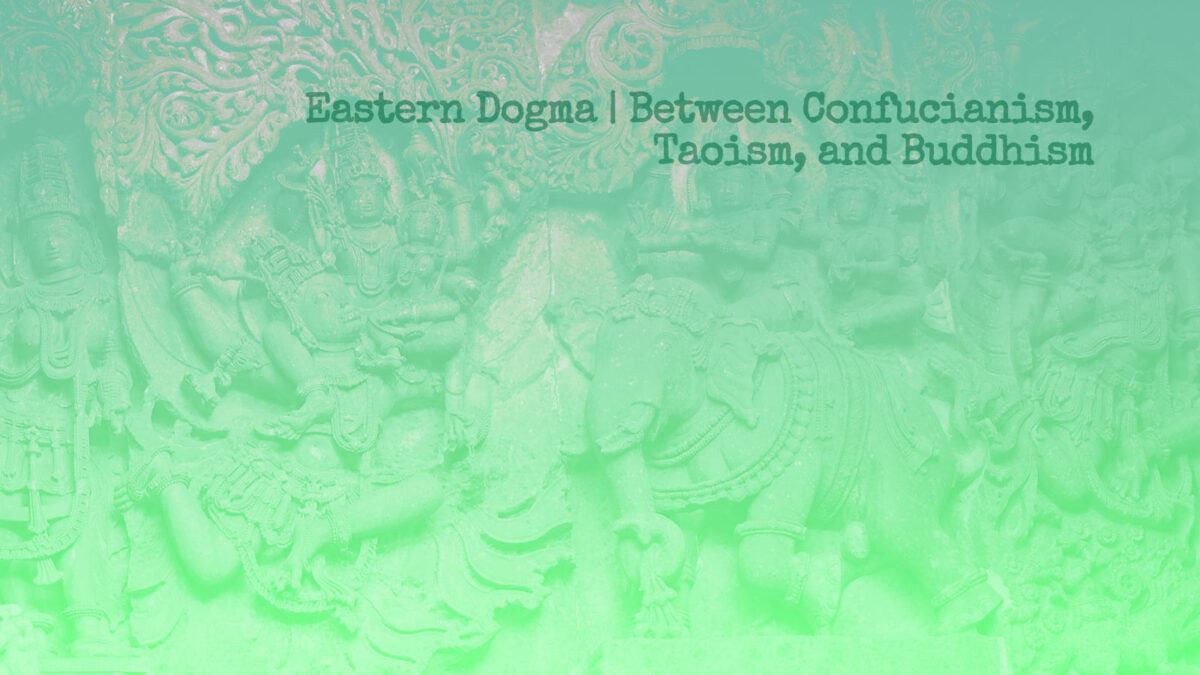Despite the differences that naturally exist between the following three forms of Eastern religion, Confucianism, Taoism, and Buddhism, as do all forms of religion, attempt to maximize the human experience by means specific to their culture and philosophy. The Chinese religions, Confucianism and Taoism, stand aside from the Buddhist world-view, yet on many points they stand in stark opposition to one other as well. Confucius, Lao-Tzu, and the Buddha all formed the dogmas that are now the foundations of their respective religion. As three men of different origin, their interpretations of life and the best means by which to live it meaningfully naturally varied creating the contrasting aspects between the three methods of eastern thought.
Buddhism revolves around the conception that all life is suffering and offers the solution to life’s suffering within its teachings, the four noble truths and the noble eight-fold path. The Buddhist worldview sees all suffering as a product of ignorant cravings that can be “extinguished” by eliminating such wanton desires. “Buddha wanted just enough philosophy to serve as a vehicle for this vision of emancipation” (Buddha and Early Buddhism) from worldly cravings from which an individual must become detached. A perpetual state of nirvana can be achieved through meditation, the Buddhist worldview, and the teachings of the Buddha. By freeing one’s self from the “bondage” of avidya, or ignorance, “the bliss of nirvana” and of the bliss of the unfettered life can be obtained.
The Confucian worldview contrasts greatly from that of the Buddhist’s. Confucianism is worldlier, teaching a life more closely knit within one’s world and society in the pursuit of a meaningful life. Confucius taught history, poetry, government, propriety, music, and divination as naturalistic methods of self-enlightenment. Reality is utmost truth to Confucius, and enlightenment is measured by the extent of one’s honest ambition throughout one’s Tao, or cosmic path. To live a life of Li, or to live by “good form” (Chinese Religion) which includes “propriety… courtesy… rites and ceremonies… [and] decorum” (Chinese Religion), is the foremost important aspect of Confucianism, for it is the actualization of one’s state of enlightenment.
The Taoist religion is in some ways more closely related to the Japanese Zen form of Buddhism than to Confucianism, its Chinese contemporary. Taoism goes against “Confucian conformity with non-conformity” and similarly, “Confucian worldliness with a transcendental spirit” (The Natural Way of Lao Tzu). Taoism is based upon the writings of Lao-Tzu and other works of Chinese literature, as is Confucianism and most Chinese religion. Lao-Tzu’s teachings had a strong emphasis “on individual life and tranquility” in addition to an egoless demeanor of living.
Lao-Tzu equates the sage, or enlightened one, to water: “The best (man) is like water. / Water is good; it benefits all things and does not compete with them. / It dwells in (lowly) places that all disdain. / This is why it is so near to Tao” (The Natural Way of Lao Tzu). Self-enlightenment within Taoism is accomplished inwardly as credibility is garnered through unclaimed and egoless action. “He accomplishes his task, but does not claim credit for it. / It is precisely because he does not claim credit that his accomplishment remains with him,” wrote Lao-Tzu.
There are many similarities and differences between Confucianism, Taoism, and Buddhism. Confucianism and Taoism are grounded in life, and the tangible “cosmic” experience thereof while Buddhism relates the dissolution of suffering through rather “acosmic” methods of mental practice. Buddhism embraces detachment from worldly obligations and duties while Confucians embrace them and use them as means towards self-enlightenment. Chinese religion differs greatly from Buddhism’s goal of attaining a state of nothinglessness and disregards the state of nirvana or other experiences of utmost potency. Despite the differing aspects between these three types of Eastern belief, all three share the end goal of self-enlightenment through practice specific to their dogmatic principles.

